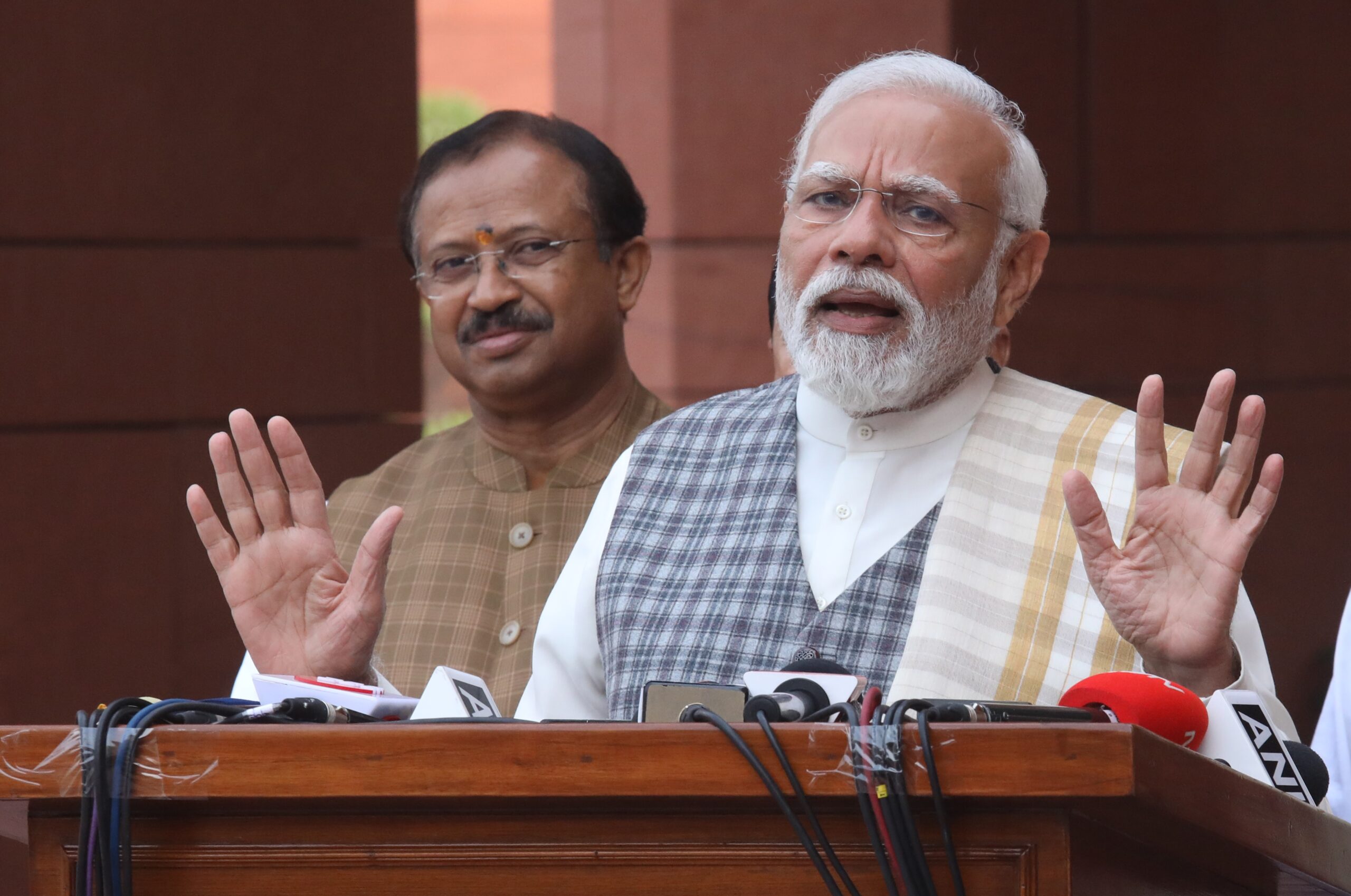India Is Becoming More Hostile to Christians
The ongoing humanitarian crisis in Manipur underlines the Modi government’s indifference to religious freedom.

When it comes to international media reporting about India, the 44-day general election process has been taking center stage as the incumbent Narendra Modi seeks a third term as prime minister. The self-declared Hindutva leader of the Bharatiya Janata Party has been unashamed in pushing for his nation to “return” to its Hindu roots; only a few months ago during the inauguration of a Hindu temple dedicated to the god Ram, he declared, “today our Lord Ram has arrived; he has been waiting for centuries.”
The nationally televised comment came against the backdrop of 12 of the 28 states in India having anti-conversion laws that criminalize people who change their religious beliefs, at least half of which have only been enacted during Modi’s administration, and increasing attacks on non-Hindu religious minorities that the government has remained silent to.
Yet India’s ever-fractured religious freedom landscape holds another painful story that has not received the global attention that it demands. From May 3 to 6, the northeastern Indian state of Manipur commemorated one year since a shocking onslaught of violence resulted in hundreds of people being murdered, hundreds of places of worship being destroyed, and tens of thousands of people losing their homes and livelihoods. Although multiple factors underpinned the violence, including longstanding ethnic and tribal tensions and disagreements over ancestral lands, the targeted attacks on Christians cannot be ignored.
Last year, after a peaceful political march quickly escalated and turned deadly between the Meitei and Kuki-Zo peoples, the police had no option but to use tear gas shells to attempt to control the rioters. The Manipur government issued a shoot-at-sight order and deployed thousands of army personnel on the ground as the number of killings, injuries, and burning buildings down increased. The number of internally displaced people who are residing in around 320 relief camps still numbers nearly 60,000.
Witness testimonial evidence presented to a group of government ministers in the International Religious Freedom of Belief Alliance group indicated a specific and intentional focus behind the violence. It was perpetrated largely by people associated with such extremist Hindu groups as the Arambai Tenggol and Meitei Leepun, who targeted both Kuki and Meitei Christians. Their deliberate actions resulted in hundreds of churches belonging to both the Meitei and Kuki peoples being burned to the ground, pastors being forced to convert away from Christianity and renounce their faith, homes of Christians being marked for vandalism or looting, public executions, beheadings, and gang rapes.
Yet the Indian government has had a woefully insufficient response to what has now become a humanitarian disaster, potentially verging on a civil war; it has failed to de-escalate the continuing pockets of violence within Manipur. A year on, we still see Meitei milia personnel looting weapons to inflict damage, killing citizens, and setting off an intentional bomb blast in a Kuki region which damaged yet another church.
Last year, Modi was silent for 70 days before feeling the pressure to make a public statement about the chaos, only after the Supreme Court had shamed the government by calling its response “lethargic.” Now, with the elections as his main priority, Modi continues to “turn a blind eye” to the region.
Thankfully, the international community is speaking out against the undeniable religious persecution factor to the crisis. The European Union and experts from the United Nations have drawn attention to the religious component of the violence, and country politicians have started to respond too. Last month, the UK foreign secretary spoke out against the “clear religious part” to the strife in India, emphasizing the need for religious tolerance in the country.
Subscribe Today
Get daily emails in your inbox
In the U.S., despite India having been excluded from the State Department’s Country of Particular Concern list this year, some members of the U.S. Senate have nonetheless not been afraid to condemn the violators of religious freedom and show support for the victims of persecution. In a bipartisan resolution led by Senators Chris Coons of Delaware, James Lankford of Oklahoma, Tim Kaine of Virginia, and Thom Tillis of North Carolina, the text called upon the U.S. to “leverage all diplomatic and sanctions tools available to the United States Government to hold religious freedom violators accountable for their actions,” and it specifically included the violations in India within its list of countries where the regimes are cracking down on Christians and other religious minorities.
All eyes are on what happens next. If Modi’s BJP wins the election, then the days look darker for religious freedom and protection of the most vulnerable. As for Manipur and the thousands of people whose livelihoods have been unalterably destroyed as they continue to battle sickness, instability, lack of places to worship, and loss of earnings in the relief camps, the international community should do more to affirm that they are not forgotten.
Editor’s note: An earlier version of this article erroneously stated that India had been excluded from the USCIRF list of countries of particular concern, rather than the State Department’s.